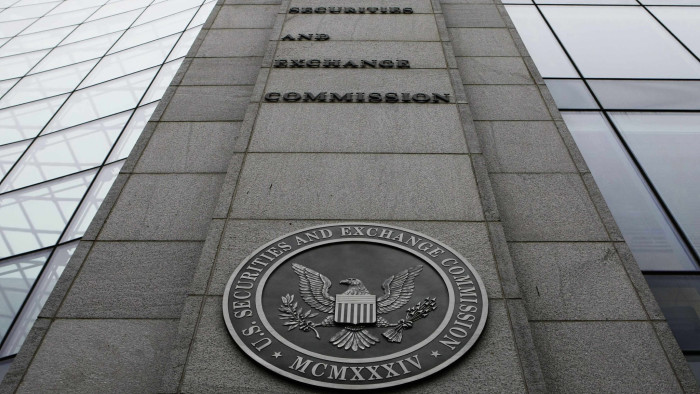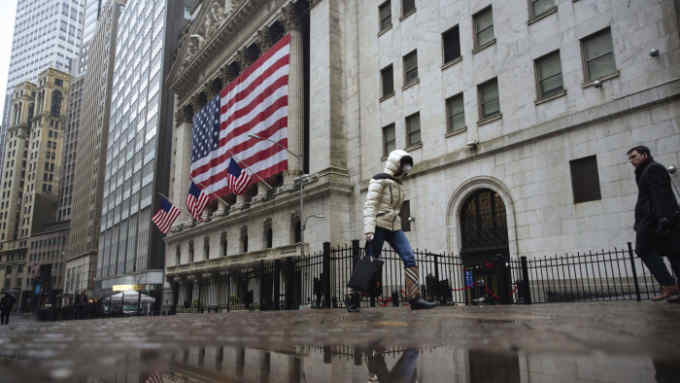Ethical investors want more proof of good deeds

Simply sign up to the ESG investing myFT Digest -- delivered directly to your inbox.
Last year, investors ploughed $20.6bn into US sustainable investment funds compared with $5.5bn of net inflows in 2018, according to Morningstar, the data provider.
But despite the near fourfold increase in investor interest, advisers are sceptical about the company and asset management data showing the environmental, social and governance impact of the funds themselves.
“I struggle mightily. I don’t believe the indexes. They are using self-reported data and I just don’t buy it,” says Traci Richmond, a financial adviser with The Meakem Group in Bethesda, Maryland.
The problem with ESG data is the lack of verification. “There’s so much data and information out there, it’s really, truly a data war,” says Tim Williams, the director of education initiatives at the Money Management Institute, a trade association.
Morningstar, Bloomberg and MSCI are among the providers of ESG data and rankings. Each has recently attempted to address investors’ scepticism by seeking out more third-party verification. MSCI, for example, points to “alternative data sets” published by “sources outside of the company” that help “minimise reliance on voluntary disclosure”.
There is also a growing trend to adopt ESG reporting standards set by organisations such as the Sustainability Accounting Standards Board (SASB) and the Task Force on Climate-Related Financial Disclosures (TFCD). But these bodies cannot set mandatory rules on data verification.
The US Securities and Exchange Commission has resisted adopting measures that some investor groups have proposed. Hester Peirce, one of the commissioners, has been openly disdainful of the ESG trend, describing it as “labelling based on incomplete information, public shaming, and shunning wrapped in moral rhetoric preached with cold-hearted, self-righteous oblivion to the consequences, which ultimately fall on real people.”
Even so, late last year the SEC sent letters to some fund managers who target socially responsible assets, asking them to provide data on what factors they took into consideration.
With no clear state-backed scrutiny of ESG data, investors and advisers must uncover deficits or misrepresentations in the growing pool of facts and figures themselves. “The challenge is how do you take all that information and turn it into useful investment decisions at all levels of the food chain,” Mr Williams says.
Many wirehouses, the national brokerages selling investment services via advisers, have started to provide tools and resources to help clients better evaluate ESG data — and not just accept them at face value.
Morgan Stanley, Merrill Lynch, Wells Fargo and UBS have increased their spending to acquire higher quality data and better sorting mechanisms for funds and assets that purport to be socially responsible.
Last summer, Morgan Stanley launched a tool to help investors and advisers uncover misalignments between their portfolios’ assets and socially responsible objectives. The tool only uses third-party verified data and identifies where data quality deficits persist, says Courtney Thompson, a vice-president in Morgan Stanley’s Global Sustainable Finance group. “Having the data available is a key [and is] driving traction around the investments.”
Morningstar also advises investors to be sceptical of fund managers and companies claiming a socially responsible focus. “I would caution investors that, while ESG index funds on the whole separate ‘better’ ESG companies from ‘worse’ ones reasonably well, those decisions are not based on fundamental evaluations and mistakes can be made,” says Jon Hale, Morningstar’s head of sustainability research. “Companies have started to understand that their ESG and sustainability disclosures are being scrutinised more heavily, and that helps.”

Investors should seek underlying holdings reports from fund managers “so they can look at really what exposures they have”, says Vanessa Jilot, a financial adviser at Viewpoint Financial Network in Pleasanton, California. “My clients hope that, as you have more money moving to request ESG data, reporting will get better.”

Comments